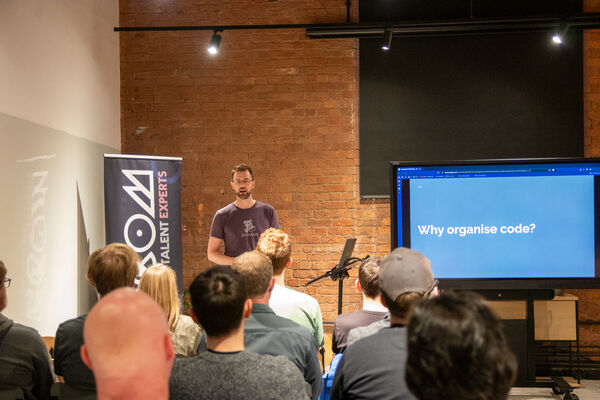Digital Skills Predictions for 2024
Pubished 28th February 2024
One question I’ve been getting asked a lot recently is what I think will happen to the skills and talent market in 2024.
Now while I don’t have a crystal ball I do have a somewhat privileged position in that I’m speaking to a wide range of individuals on a daily basis, from leaders of some of the North's biggest tech businesses to tech startups, small digital agencies and everything in between. This gives me a rounded view of the market, the changes that are happening and the challenges businesses are facing. Working within the industry for over 20 years, I’ve been through numerous economic cycles all of which follow similar trends, so here are my predictions for 2024…
Cautious permanent headcount growth
Sentiment to hiring is on the up; 82% of tech employers are planning on hiring in 2024, a marked increase from the back end of last year. However, there is still a lot of uncertainty in the market so we’re unlikely to see large-scale growth, I think we’ll start slowly with hiring activity gaining pace in the 2nd half.

Increased use of contractors
As we exit any economic downturn, we always see the use of contractors increase and I don’t see it being any different this time around. Organisations will look to deliver stalled projects, catch up on work that’s been shelved or deliver important product improvements without wanting to commit to permanent headcount spend. In fact, 65% of businesses report a plan to significantly increase the use of contingent workers.

The continued rise of flexible employment models
I don’t mean flexible or hybrid working here, I’m talking about how businesses engage with skills and talent outside of the more traditional routes of permanent and contract hiring. At one end of the spectrum, we have the rise of the gig economy most visibly in the likes of Uber & Deliveroo. At the other end of the spectrum, we have the increased prevalence of fractional executive roles. I know more fractional CTOs now than I ever have before. This trend has been growing for several years now and I’m confident we’ll see it continue in 2024 and beyond. As individuals enjoy the flexibility and variety of having more control over their work lives, businesses benefit from access to specific skills and experience when they need it without permanent or ongoing costs.
Early careers hiring taking a back seat
One of the unfortunate trends we saw last year was juniors being some of the worst affected by redundancies, this coupled with the majority of businesses reducing or stopping their early career programs will already have had a significant impact on the pipeline of future talent into our industry. With continued pressure on costs this year and growth expected to be cautious then I think we’ll see this continue as organisations focus on the short-term of hiring experienced talent. This does worry me as it’s a short-sighted view that will only increase the skills gap but it’s the reality of the market we are in at the moment.
Candidates will start to move again
2023 saw many people put their careers on hold or take less than optimal roles after being made redundant due to a lack of confidence in the market. 2024 will see change; already 79% of software developers are open to moving in the next 12 months. This increased confidence in the market will see people starting to move more freely again creating opportunities across the sector. Organisations need to be aware of this and ensure staff retention is high on the agenda to ensure they don’t risk losing important skills and knowledge.

A move back to the office
In 2023 we saw more businesses increase the required amount of time their teams are in the office, and I think we’ll see this continue again this year. While those businesses that make the change will undoubtedly see a short-term impact on retention and will reduce the available pool of talent when looking to hire, there are a lot of longer-term benefits. The remote/hybrid/office conversation is a contentious one and one that we’ll probably never have a conclusive answer on but I’m sure we’ll continue to see change in this area as businesses adapt and find what works for them and their teams.
Demand for growth skills
If we look at the data around where the demand for specific skills will be, it’s no surprise that AI comes out on top with Data and Security also ranking highly. What we can’t see just yet is exactly what those AI skills will look like, it’s a fast-evolving sector and top of the agenda for many businesses. I’m sure we’ll see a lot of change in demand within this space in 2024.

So, those are my predictions for the digital and technology skills market in 2024, it’s worth noting that this article is based on a talk I did at Manchester Digital’s Digital Skills Festival at the start of February. Since then, it’s been announced that the UK was officially in recession in Q4 (albeit a very marginal change) coupled with the fact that we have an election this year means I don’t think it’s going to be plain sailing and we’ll still see plenty of change.
If you have any questions about anything in this article or would just like to chat about the market in general drop me a line, I’d love to hear from you.


